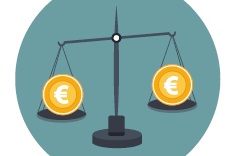Content
Information pages for small and medium-sized enterprises
How to protect your innovations
Intellectual property rights are crucial to effectively protect innovations and trade marks against theft and counterfeiting. Our SME pages offer you information about what you as a small and medium-sized enterprise (SME) can do to keep your company’s inventions safe. Moreover, they explain the importance of patents, trade marks, designs, copyrights and trade secrets. Not only do intellectual property rights provide protection and competitive advantages, they also make your company more attractive to potential investors and business opportunities.

Five good reasons why your company should start thinking about its intellectual property.
 Read more
Read more

Useful inventions, great designs or catchy trade mark names can have a very high economic value. All the more reason to protect your intellectual property against unwanted imitations! But what kind of intellectual property rights are there?
 Read more
Read more

Getting started is often the hardest part – which is why we have gathered some tips to help you save time and avoid unnecessary work regarding the protection of your intellectual property.
 Read more
Read more

Intellectual property rights only work when you actually prosecute infringements. Find out which possibilities you have. Includes case studies and practical tips.
 Read more
Read more

You want to learn more about IP rights? The DPMA and its cooperation partners are happy to support you and offer informational material, search rooms, initial consultations, trainings and funding opportunities.
 Read more
Read more

This year, the European Commission will once again provide funding for small and medium-sized enterprises to make it easier for them to apply for industrial property rights. You can find more information on the SME Fund here.
 Read more
Read more

Last but not least: In this section you’ll find the most recent studies and new developments regarding SMEs and intellectual property.
 Read more
Read more
Bild 1: iStock.com/skynesher, weitere Bilder: DPMA
Last updated: 28 January 2026



 Read more
Read more






Not only protecting innovations
Social Media